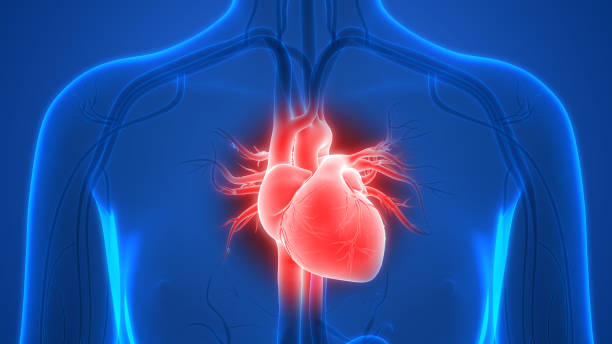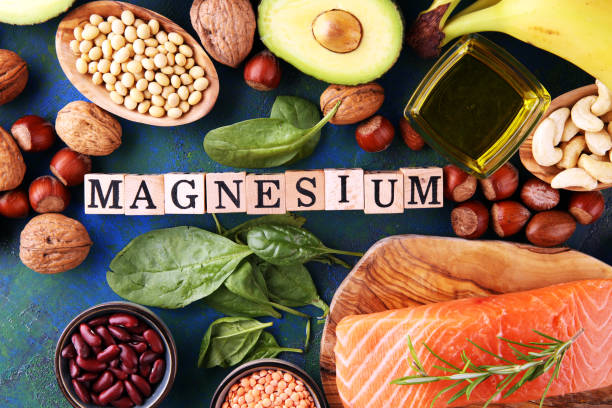Article authored by Kevin Skillström.
Tired for no reason? Do you have trouble sleeping or get frequent muscle twitches? It could be the body trying to say something. Magnesium is one of our most underrated minerals, despite being involved in hundreds of functions that keep us alert, focused and moving. When we don’t get enough, both our body and brain are affected. Find out why magnesium can be the key to more energy, better recovery and a more balanced mood in everyday life.
What is magnesium and what does it do in the body?

Magnesium is one of the body’s most versatile and vital minerals. Yet it often goes under the radar in everyday life, despite being involved in so much more than many people think. Without adequate levels of magnesium, the body does not function properly, either physically or mentally.
Magnesium is considered an essential mineral, which means that the body cannot produce it itself. It must therefore be obtained from food or, if necessary, from supplements. About 60% of the body’s magnesium is found in the bones, while the rest is distributed among muscles, soft tissues and body fluids, where it is constantly working silently to maintain our health.
Magnesium – a mineral with over 300 missions
Magnesium is involved in over 300 enzyme reactions in the body, from energy production to nerve transmission, hormone balance, muscle function, immune system and more. Without magnesium, important processes in the body would come to a standstill.
6 key ways magnesium affects the body
1. Really energizes the body
Tired, sluggish or low energy despite good sleep? Magnesium is a key player in the body’s energy factory. It is needed to produce and activate ATP (adenosine triphosphate), the molecule that fuels cells. Without magnesium, this process doesn’t work optimally, which can leave the body feeling like it’s running on empty.
2. Muscles that work, not get in the way
Magnesium helps muscles to relax after contraction. When we exercise, move or even breathe, magnesium plays a role. Deficiency can lead to cramps, twitching, stiffness or muscles feeling unreasonably tired. Even the heart, which is a muscle, is affected by magnesium balance.
3. The sleep we often forget
Magnesium has a calming effect on the nervous system. Among other things, it affects neurotransmitters such as GABA (gamma-aminobutyric acid), which helps the brain to unwind before sleep. Many people find that magnesium supplements can make it easier to fall asleep and make sleep feel deeper and more restorative.
4. Heart, vascular and blood pressure
Magnesium has been shown to support a stable heart rhythm, help keep blood pressure within healthy limits and help blood vessels stay relaxed. Several studies have linked low magnesium levels to an increased risk of high blood pressure and other cardiovascular problems.
5. Builds up the skeleton from within
Magnesium is not only a ‘helping hand’ to calcium and vitamin D, it is an active building block of bone tissue. It is needed for calcium to be absorbed and stored in the bones. Without magnesium, the body cannot properly absorb calcium, making it particularly important for bone health, especially in older people.
6. stabilizes mood and reduces stress
Magnesium has a proven link to mental health. Research shows that low levels can contribute to increased susceptibility to stress, worry, anxiety and in some cases even depression. It affects the stress hormone cortisol and helps the nervous system to process impressions without becoming overloaded.
Symptoms of magnesium deficiency, when the body says no
Magnesium deficiency can be difficult to detect, often creeping up on you with vague symptoms that are easy to explain away with stress, lack of sleep or ‘just having a lot on your plate’. But because magnesium affects so many functions in the body, even a moderate deficiency can create imbalances in both body and mind.
It’s not uncommon to walk around with a low-level deficiency for a long time, especially in today’s society where stress, fast food, coffee, alcohol and hard exercise can deplete the body’s magnesium stores faster than we can replenish them.
Common symptoms of magnesium deficiency
1. tiredness and lack of energy
One of the earliest signs of deficiency. Because magnesium is needed for cells to produce energy, even a slight deficiency can leave you feeling tired, drained of energy and ‘mushy in the head’, despite adequate sleep.
2. Muscle cramps and twitches
Calf cramps, eye twitching or a sudden muscle twitch? Magnesium deficiency can cause overactive nerves and muscles, causing them to contract involuntarily. This is one of the best-known symptoms.
3. insomnia
As magnesium has a calming effect on the nervous system, deficiency can affect both falling asleep and sleep quality. Many people who suffer from deficiency experience shallow sleep, more frequent awakenings and more difficulty feeling rested in the morning.
4. Headaches and migraines
Research shows that low levels of magnesium can trigger tension headaches or migraines, as blood vessels and the nervous system are negatively affected. For some, magnesium supplementation can prevent recurrent migraine attacks.
5. Increased stress sensitivity and anxiety
A lack of magnesium makes it harder for your body to regulate cortisol (stress hormone). You may feel more irritable, anxious or find that small things affect your mood more easily. Many people describe this feeling as ‘nerves on edge’.
6. Numbness or tingling
The nervous system needs magnesium to send signals properly. When it’s missing, you may experience tingling, pins and needles or numbness, often in your hands, feet or face. This is not dangerous in itself, but it is a sign that something is out of balance.
7. blood sugar problems.
We need magnesium to properly manage our blood sugar and insulin systems.
8. Palpitations or irregular heartbeat
As the heart is a muscle, it is also affected by magnesium balance. Slight deficiency can lead to extra heartbeats or the feeling that the heart is racing, especially during stress or physical exertion.

Who is at risk of magnesium deficiency?
Everyone. But some groups are more vulnerable to magnesium deficiency than others:
Athletes and people who sweat a lot
Sweat = loss of magnesium
Stressed people
Stress increases excretion via urine
Older people
Uptake from food decreases with age
Pregnant and breastfeeding women
Demand is growing rapidly
People with stomach problems or certain medicines
E.g. diuretics, proton pump inhibitors, antibiotics
The body’s warning system for magnesium deficiency
Many of the symptoms of magnesium deficiency are subtle, but when several of them occur at once, it’s worth listening. The body is trying to tell you something. Often, magnesium is overlooked as a possible cause, even though it’s a simple thing to fix with the right diet or supplements.
If you suspect a deficiency, it is wise to review your diet, lifestyle and possibly talk to your healthcare provider or try a high-quality magnesium supplement for a period to see how your body responds.
How do we get magnesium?
Magnesium is a mineral that the body cannot produce on its own, which means we need to get it through our diet, every day. Fortunately, magnesium is found naturally in many nutrient-rich foods, but it is still common to not get enough from food.
Natural sources of magnesium:
Green leafy vegetables
Spinach, kale and chard are rich in magnesium thanks to chlorophyll, the plants’ green colorant.
Wholegrain products
Oatmeal, wholemeal bread, quinoa and brown rice are high in magnesium, especially in the outer layer of the grain.
Legumes
Chickpeas, black beans, lentils and soybeans are good additions.
Nuts and seeds
Almonds, cashews, pumpkin seeds and sunflower seeds are among the best sources of magnesium.
Fruit and vegetables
Avocados, bananas and figs contain smaller amounts of magnesium, but can still contribute.
Dark chocolate
An unexpected but popular source, preferably over 70% cocoa.
Oily fish
Salmon, mackerel and tuna contain both magnesium and omega-3 fatty acids.

Although magnesium is found in many foods, studies show that a large part of the population still does not reach the recommended daily intake. There are several reasons for this. Some of the magnesium content is lost during cooking and industrial processing of food. In addition, our arable soils have become increasingly mineral-poor over the years, which means that even fresh vegetables may contain less magnesium than before. Lifestyle factors also play an important role: stress, high coffee consumption, alcohol intake and some medicines can increase the body’s need for magnesium or speed up its release.
Magnesium as a food supplement
For those who find it difficult to get enough magnesium from their diet, or who have an increased need, a supplement can be a good addition.
Magnesium supplements come in several different forms:
magnesium citrate
Magnesium bound to citrate. An easily absorbed form often recommended for fatigue or stomach problems. Absorbed quickly.
magnesium oxide
Contains a lot of magnesium per dose, but has lower bioavailability. There are those who say that the slow absorption may be an advantage for some, possibly in combination with some amino acid bound form such as citrate. We at the Aroniabutiken prefer the amino acid bound variety.
Magnesium glycinate
A gentle and soothing form, especially good in the evening or for people with sensitive stomachs.
Magnesium chloride and magnesium taurate
Other options sometimes used for specific needs, such as heart health or relaxation.
Supplements can be taken at any time during the day, but many people prefer to take magnesium in the evening as it can have a calming effect on the nervous system and muscles. If you are severely deficient and need 500 mg or more per day, we recommend spreading it out, for example morning and evening.
How much magnesium do we need?
A common question is how much magnesium you actually need each day for your body to function optimally. The recommended daily intake (RDI) varies slightly depending on gender, age and life situation. For adult women, the RDI is around 280 to 320 milligrams per day, while adult men are recommended around 350 to 400 milligrams. We think this is low and that you could double this, especially if you have increased needs due to exercise, stress or pregnancy. We think the RDI is very low and we see that magnesium deficiency has almost become a common disease.
Can you get it from food? To get an idea of what this means in practice, it might be useful to look at some foods that are particularly rich in magnesium. Pumpkin seeds contain a whopping 500 mg of magnesium per 100 grams, making them one of the best natural sources. Other examples are almonds about 270 mg/100 g, spinach about 80 mg/100 g, cooked and dark chocolate about 230 mg/100 g.
Eating a varied diet and including magnesium-rich foods in your diet every day can go a long way – but for many people it can still be difficult to meet their full needs without supplements, especially during periods of stress or physical strain.
Magnesium and interaction with other nutrients
Magnesium does not work alone in the body; on the contrary, it interacts with several other important nutrients. A good example is vitamin D, which plays a key role in the body’s absorption of magnesium. Without enough vitamin D, the body may find it harder to absorb and use magnesium effectively, so these two nutrients reinforce each other.
Calcium is also closely linked to magnesium, especially in the case of muscles and bones. They are what we call antagonists. The balance between these two minerals is crucial, too much calcium in relation to magnesium can lead to tension, stiffness or even cramps and arrhythmia. Therefore, it is important not to focus on just one of them, but to ensure that the body has the right balance. There is a lot of focus on calcium, so magnesium is often forgotten. Too much calcium, especially as a supplement, easily leads to relative magnesium deficiency! We therefore advise caution with calcium supplements, unless you have an established calcium deficiency (which is rare). In that case, they should be taken together, but we think that it is only magnesium that most people need, as they are relatively magnesium deficient (not calcium deficient, by relative we mean too little magnesium in relation to its “partner” calcium).
Finally, vitamin B6 and zinc are often mentioned in the context of magnesium supplementation. B6 can help magnesium to be absorbed more easily into cells, while zinc supports several of the enzyme reactions that magnesium is involved in. Many supplements therefore combine these substances.
Summary, give your body what it needs
Magnesium may not be something we think about every day, but it plays an important role in how we feel. Perhaps that’s why magnesium supplements have seen a big boost in recent years. It helps us work harder, sleep better, manage stress and keep our muscles and heart in shape. Yet many people don’t get enough, and the body often tries to tell us through fatigue, cramps, anxiety or poor sleep.
By eating foods rich in magnesium or taking supplements when needed, you can make a simple change that makes a big difference. Taking care of your body doesn’t always have to be a big effort, sometimes it’s enough to replenish what’s missing.
Listen to the signals.
The Aronai store has many varieties of magnesium. You can find them here: https://aroniabutiken.se/produkt-kategori/vitaminer-och-mineraler/
We also have magnesium-rich foods like hemp seeds and pumpkin seeds.

